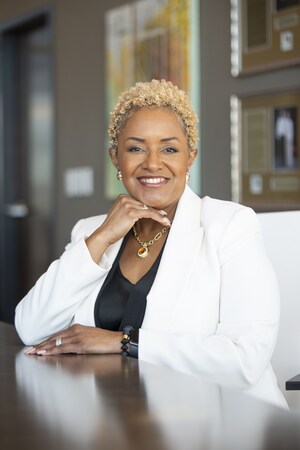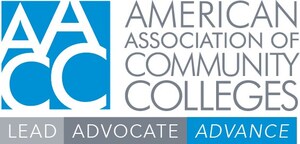
Seven Community Colleges To Pilot Benefits Access Project
$4.84 Million Initiative to Help Students Connect with Income Supports, Earn Credentials
WASHINGTON, Sept. 11, 2012 /PRNewswire-USNewswire/ -- With backing from the nation's leading foundations, seven community and technical colleges announced today they will pilot an initiative testing innovative approaches to increase the number of students who earn postsecondary credentials. Benefits Access for College Completion (BACC) is a three-year, $4.84 million initiative funded by the Ford Foundation, the Kresge Foundation, Lumina Foundation, and the Open Society Foundations, and managed by the Center for Law and Social Policy (CLASP) and the American Association of Community Colleges (AACC). The Annie E. Casey Foundation is also contributing to the initiative.
BACC will help low-income students connect to coordinated income supports including child care subsidies and food assistance. The initiative will be evaluated to see if low-income students who receive coordinated income supports stay in school longer and complete their studies more quickly. Public supports and refundable tax credits can help low-income students, who now make-up 40 percent of the student population, fill the gap between financial aid and the resources needed to attend college. The initiative's aim is to help students complete their studies swiftly and successfully and move into jobs earning family-sustaining wages so they will be less likely to need such supports in the future.
According to the College Board, the average full-time community college student had more than $6,000 in unmet need in 2011-2012 The result is that 66 percent of young community college students work more than 20 hours per week to help pay for school and their home and family obligations, and 58 percent attend college part-time to accommodate work.
"In today's economy, it's more important than ever that students have the supports to earn a higher education so they can land better jobs and support their families," said Evelyn Ganzglass, Director of Workforce Development at CLASP. "Rising college costs mean an education is increasingly out of reach for millions. By combining traditional student financial aid with public supports, students are better positioned to get by and complete their education. And when more students earn credentials, more employers have the skilled workers they need, and the labor market is able to stay competitive."
During the project's planning phase, each college created its own plan to integrate screening and application assistance for public benefits with the services and supports that colleges already provide, like financial aid counseling. The colleges are partnering with local human services agencies to better provide these integrated services. Each one took into account local resources and policy contexts to develop strategies that will substantially assist students. By the end of the grant period, the initiative will serve low-income students through these innovative plans, which include:
- Developing new campus centers and expanding existing ones that focus on helping students access the financial resources they need to complete college;
- Identifying innovative financing strategies to fund benefits screeners and facilitators on campus;
- Building information about publicly available supports into financial aid conversations;
- Partnering with state and county human services agencies to better serve students;
- Integrating existing online benefits screening tools into on-campus activities;
- Informing students about publicly available supports through existing meetings with college advisors;
- Raising awareness among faculty, staff and students of the existence of these supports; and helping counselors and other direct service staff provide technical support to students.
"We applaud these colleges for taking an informed and proactive look at how they can help those students most in need of financial and public support to pursue their college and career goals while dealing with work and family pressures," AACC President Walter G. Bumphus said. "These benefits, including health insurance, food, and child care, as well as financial aid, can help them to complete credentials and get into well-paying jobs.."
The colleges participating in the implementation phase of the project are: Cuyahoga Community College (OH), Gateway Community and Technical College (KY), LaGuardia Community College (NY), Lake Michigan College and Macomb Community College (MI), Northampton Community College (PA), and Skyline College (CA).
"These institutions have stepped up with new and creative ideas to meet the financial needs of low-income college students," said Ford Foundation Program Officer Chauncy Lennon. "This initiative will offer a space for experimentation to test whether delivering these supports on campus will ultimately increase the number of students who complete credentials, become skilled workers and succeed in our economy."
The pilot period for this initiative will last from the fall 2012 semester through 2014, after which BACC will share the most successful strategies and lessons learned with policymakers and other community colleges nationwide to improve retention and credential completion.
CLASP develops and advocates for policies at the federal, state and local levels that improve the lives of low-income people. We focus on policies that strengthen families and create pathways to education and work. Through careful research and analysis and effective advocacy, we develop and promote new ideas, mobilize others, and directly assist governments and advocates to put in place successful strategies that deliver results that matter to people across America. www.clasp.org
The American Association of Community Colleges is the leading national association representing the nation's close to 1,200 community, junior and technical colleges and their more than 13 million students. Community colleges are the largest and fastest growing sector of higher education, currently enrolling almost half of all U.S. undergraduates. For more about AACC and community colleges see www.aacc.nche.edu.
The Ford Foundation is an independent, nonprofit grant-making organization. For 75 years it has worked with courageous people on the frontlines of social change worldwide, guided by its mission to strengthen democratic values, reduce poverty and injustice, promote international cooperation, and advance human achievement. With headquarters in New York, the foundation has offices in Latin America, Africa, the Middle East, and Asia. For more information, visit www.fordfoundation.org.
Based in metropolitan Detroit, The Kresge Foundation is a $3 billion private foundation that seeks to influence the quality of life for future generations through its support of nonprofit organizations working in its seven program areas: Arts and Culture, Community Development, Detroit, Education, the Environment, Health, and Human Services. Fostering greater access to and success in postsecondary education for low-income, minority and first-generation college students is the focus of Kresge's Education grantmaking. In 2011, Kresge awarded more than $22 million in grants to support higher education in the United States and South Africa, with half benefiting U.S. community colleges. For more information, please visit www.kresge.org or follow @kresgedu.
Lumina Foundation, an Indianapolis-based private foundation, is committed to enrolling and graduating more students from college—especially 21st century students: low-income students, students of color, first-generation students and adult learners. Lumina's goal is to increase the percentage of Americans who hold high-quality degrees and credentials to 60 percent by 2025. Lumina pursues this goal in three ways: by identifying and supporting effective practice, through public policy advocacy, and by using our communications and convening power to build public will for change. For more information, log on to www.luminafoundation.org.
Active in more than 70 countries, the Open Society Foundations work to build vibrant and tolerant democracies whose governments are accountable to their citizens. Working with local communities, the Open Society Foundations support justice and human rights, freedom of expression, and access to public health and education. For more information, visit www.soros.org.
The Annie E. Casey Foundation is a private charitable organization, whose primary mission is to foster public policies, human-service reforms, and community supports that more effectively meet the needs of today's vulnerable children and families. For more information, visit www.aecf.org.
SOURCE American Association of Community Colleges







Share this article